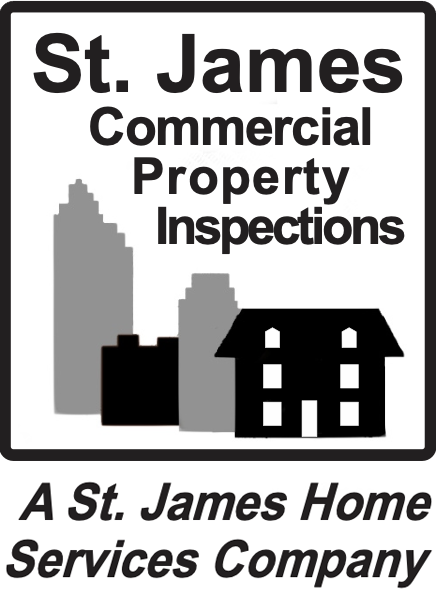Buildings that aren’t maintained regularly often experience higher operating costs, tenant complaints, and even safety risks. A commercial property maintenance schedule organizes everything, from daily upkeep to yearly inspections, guaranteeing that no system is overlooked. It’s about preventing costly repairs and creating a safe, efficient, and appealing environment where businesses will operate smoothly. When tenants feel confident in their space, they’re more likely to stay long term, which benefits owners financially and their reputation.
Monthly Tasks That Keep Operations Running
A strong commercial property maintenance routine starts with small, consistent actions. Monthly inspections are an opportunity to walk through the property and note potential concerns before they become emergencies. Common monthly tasks include checking HVAC filters, testing exit signs and emergency lighting, and reviewing safety equipment like fire extinguishers. Inspect plumbing fixtures for leaks, common areas for wear, and security systems. Taking care of these routine tasks helps maintain smooth operations and provides peace of mind to both owners and tenants.
Seasonal Commercial Property Maintenance Priorities
Every season brings new challenges for commercial properties, and addressing them proactively prevents damage and reduces expenses. In spring, the focus should be on undoing the effects of winter, cleaning gutters, checking roofs for storm damage, and refreshing landscaping. Summer often stresses cooling systems, so servicing air conditioners, cleaning ducts, and monitoring ventilation systems are important. Fall is about preparation for the colder months, inspecting heating systems, sealing gaps around windows and doors, and servicing boilers if applicable. Winter maintenance emphasizes safety: clearing snow and ice, protecting plumbing from freezing, and ensuring walkways remain safe for tenants and customers. Aligning maintenance tasks with the seasons ensures the property is always ready for what’s next.
Annual Inspections for Long-Term Success
Some tasks only need to be scheduled once a year, but they are critical for long-term property health. Annual commercial property maintenance should include a professional inspection of key systems like plumbing, electrical, and HVAC. Safety systems, fire alarms, sprinklers, and carbon monoxide detectors should also be tested for compliance and functionality. A full yearly roof inspection helps identify potential leaks or structural concerns before they worsen. Annual deep cleaning for carpets, windows, and ventilation systems improves the look and feel of the property while extending the life of materials. These professional services are investments that pay dividends by preventing downtime and costly emergency repairs.
Balancing Tenant Needs with Property Maintenance
Tenants depend on a safe, comfortable, and professional environment to run their businesses. Promptly addressing repairs and communicating about scheduled maintenance builds trust and reduces frustration. For example, notifying tenants about HVAC servicing or elevator inspections in advance allows them to plan around the inconvenience. Consistent maintenance keeps tenants satisfied while protecting owners from liability if safety concerns arise. A strong relationship with tenants is often the difference between short-term leases and long-term partnerships.
Creating a Customized Property Maintenance Plan
No two commercial properties are identical, so a personalized maintenance plan is important. An office complex with elevators has very different needs than a retail plaza or warehouse. Age, size, location, and tenant type all affect what the schedule should look like. Owners of older properties may need more frequent inspections of plumbing or electrical systems, while newer buildings may require less but should still be checked consistently. Building a customized commercial property maintenance plan guarantees nothing falls through the cracks while optimizing time and costs.
The Value of Staying Consistent
Consistency is the cornerstone of effective property maintenance. It’s far easier and less expensive to handle issues while they’re small than to deal with emergencies that disrupt business. Sticking to a schedule also extends the life of building systems, reduces energy consumption, and keeps the property compliant with safety regulations. Perhaps most importantly, it builds a reputation for professionalism and reliability. Tenants and visitors notice when a property is well cared for, and that perception directly contributes to tenant retention and long-term property value.
FAQs
How often should HVAC systems be serviced in commercial properties?
Ideally, HVAC systems should be serviced twice a year, once before the cooling season and again before the heating season.
Do I need professional help for all property maintenance?
Not every task requires outside help. In-house staff may often handle routine inspections, cleaning, and basic repairs. However, specialized systems like fire suppression, electrical, and structural inspections should always be managed by professionals.
What’s the most common oversight in commercial property maintenance?
Parking lots and exterior lighting are frequently neglected, yet they play a big role in tenant satisfaction and safety.
How does property maintenance impact overall value?
Consistent property maintenance preserves structural integrity, reduces operating costs, and supports tenant retention, which directly increases the property’s long-term value.
St. James Commercial Property Inspections offers inspection services in North Carolina and Southern Virginia. Contact us to request an appointment.

